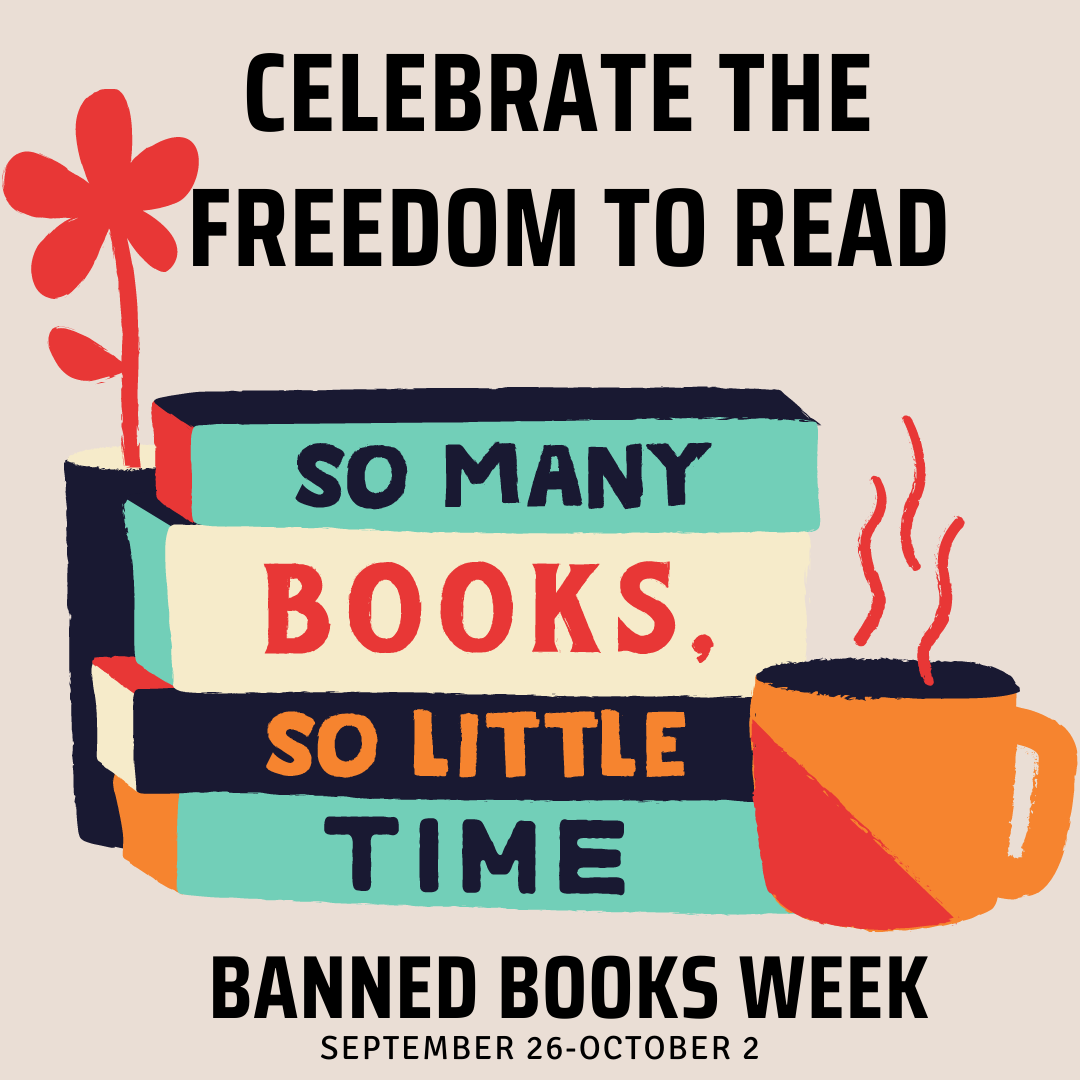Celebrate Banned Books Week: Sept. 26 - Oct. 2
Celebrate Banned Books Week: Sept. 26 - Oct. 2

Posted
Banned Books Week is an annual event celebrating the freedom to read. Banned Books Week was launched in 1982 in response to a sudden surge in the number of challenges to books in schools, bookstores and libraries. Banned Books Week highlights the value of free and open access to information. Banned Books Week brings together the entire book community — librarians, booksellers, publishers, journalists, teachers, and readers of all types — in shared support of the freedom to seek and to express ideas, even those some consider unorthodox or unpopular.
Celebrate the freedom to read by exploring the Kramer Family Library’s Graphic Novel, Young Adult, and Popular Reading collections. You can also find more to read at with your Pikes Peak Public Library College Account.
Sign up at https://kfl.uccs.edu/services/ppld-college-account to access eBooks, electronic audiobooks, streaming music and more
Banned Books Week 2021 will be held September 26 – October 2. The theme of this year’s event is “Books Unite Us. Censorship Divides Us.”
By focusing on efforts across the country to remove or restrict access to books, Banned Books Week draws national attention to the harms of censorship.
The Top 10 Challenged Books of 2020 are:
- George by Alex Gino. Challenged, banned, and restricted for LGBTQIA+ content, conflicting with a religious viewpoint, and not reflecting “the values of our community.”
- Stamped: Racism, Antiracism, and You by Ibram X. Kendi and Jason Reynolds. Banned and challenged because of the author’s public statements and because of claims that the book contains “selective storytelling incidents” and does not encompass racism against all people.
- All American Boys by Jason Reynolds and Brendan Kiely. Banned and challenged for profanity, drug use, and alcoholism and because it was thought to promote antipolice views, contain divisive topics, and be “too much of a sensitive matter right now.”
- Speak by Laurie Halse Anderson. Banned, challenged, and restricted because it was thought to contain a political viewpoint, it was claimed to be biased against male students, and it included rape and profanity.
- The Absolutely True Diary of a Part-Time Indian by Sherman Alexie. Banned and challenged for profanity, sexual references, and allegations of sexual misconduct on the part of the author.
- Something Happened in Our Town: A Child’s Story about Racial Injustice by Marianne Celano, Marietta Collins, and Ann Hazzard, illustrated by Jennifer Zivoin. Challenged for “divisive language” and because it was thought to promote antipolice views.
- To Kill a Mockingbird by Harper Lee. Banned and challenged for racial slurs and their negative effect on students, featuring a “white savior” character, and its perception of the Black experience.
- Of Mice and Men by John Steinbeck. Banned and challenged for racial slurs and racist stereotypes and their negative effect on students.
- The Bluest Eye by Toni Morrison. Banned and challenged because it was considered sexually explicit and depicts child sexual abuse.
- The Hate U Give by Angie Thomas. Challenged for profanity, and because it was thought to promote an antipolice message.
Personal Statement from Library Staff Member Julia Bullock about the Captain Underpants Series
It’s Banned Books Week. I’m a mom of 13- and 15-year-old kids, and I’ve made a practice of reading to them ever since they were small. One of our big favorites for many years was the Captain Underpants series by Dav Pilkey. The books are enjoyably hilarious for a wide range of ages, and they feature positive characterizations of kids who are neurodiverse. Like many other banned children’s books, the Captain Underpants stories teach children to question authority. The series has also been banned for featuring an openly gay character, containing offensive language (references to underpants), depicting partial nudity (a main character wears underpants and a cape), and depicting violence (kids whacking evil robots with wooden planks).
Here’s the author, Dav Pilkey, discussing being banned: https://www.youtube.com/watch?app=desktop&v=paluqcTnRis&feature=youtu.be